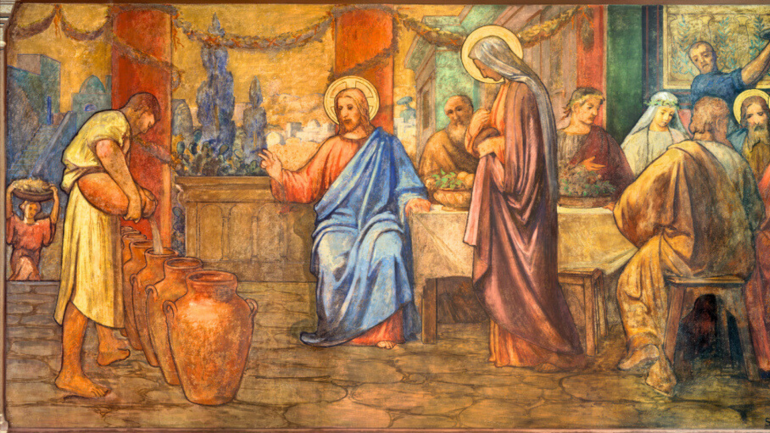When Mary Intervened—and So Did My Wife

A recent evening gathering at our home to welcome a newly wedded couple and their parents was going very well. It was the first time they were visiting us after their marriage. As part of our tradition, newlyweds undertake such visits to relatives. It was a special occasion, filled with joy.
The merriment (for me) was suddenly shattered by a statement after dinner. “This does not taste good,” my better half said, after sampling my best French orange liqueur that I had offered the guests, brought from abroad and preserved for special occasions. I was mortified, as we wanted the couple to experience the best of hospitality in our home.
I immediately switched the drink and said nothing to my wife at that time, though I was upset. Did she have to mention it in front of all? The moment passed, and the evening went on without further incident.
Later, as I reflected on this, I finally understood that my wife had done the right thing. The bottle had been opened earlier and, though carefully preserved in a cool and dark cabinet, might have gone bad over time. Perhaps, had our guests drunk it without our noticing, they might have fallen ill. That my wife was forthright about it and chose to intervene, in fact, worked to our advantage, sparing everyone from potential health problems.
We have a somewhat similar incident in the Bible, recorded by the evangelist John (2:1–11). A wedding was taking place at Cana. Mary was present, along with Jesus and His disciples. The narrative suggests that Mother Mary was very close to the wedding party, and so was Jesus.
When the hosts ran out of wine, Mary got involved in what, at first glance, might not have been her concern. Many Bible scholars suggest her intervention indicated she may have been a close relative of one of the families. She simply told Jesus: They have no wine.
When He replied that His hour had not yet come, addressing her as “Woman” (a word He would use again only at Calvary, from the Cross), she was not discouraged. Instead, she calmly instructed the servants: Do whatever He tells you.
The rest of the story is well known, six large stone jars of water, meant for purification, were turned into the finest wine, astonishing the steward and guests. The celebration continued in joy.
Mary chose to intervene in a situation and, in doing so, saved the family from shame and humiliation. This Gospel episode has many layers of meaning. It needs to be read again and again.
Mother Mary asked Jesus to perform His first miracle, knowing full well this would set Him on the path of sorrows that would pierce her own heart, but which was necessary for our salvation. After this moment, she speaks no more in this Gospel.
Her words remain forever poignant: Do whatever He tells you.
They remind us that, no matter the bleakness, disappointment, or despair we face, we can surrender our stone jars to Mother Mary, and she will intercede with her Son. Then He will fill them with the everlasting wine that never runs out.
Such is the importance of the Wedding at Cana that the narrative has been reflected upon by great Church leaders such as St. Pope John Paul II, Pope Francis, St. Bernard of Clairvaux, St. Thomas Aquinas, and Archbishop Fulton Sheen, among others.
Cana is a place of transformation, where lack becomes abundance through the intercession of Mary and the power of her Son.








